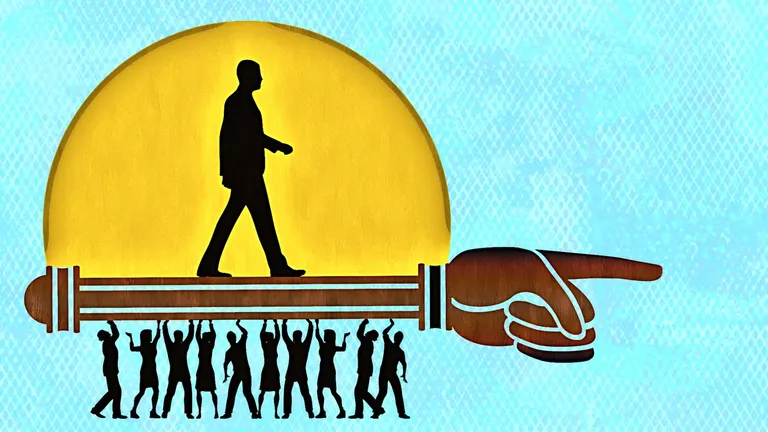
- January 3, 2025
- Authoritarianism, Democracy, Political Science, Psychology, Social Ethics, Social Philosophy
Among many aberrations observed in some democratic regimes is treating citizens as ignorant of civic education and who only care about their vote during electoral periods. Lies are imposed, pathological political narcissism is given a glow, stories are given more value than facts, extreme cynicism is practiced, legal distortion of institutions is promoted, and the ability to create enemies is created.
I avidly read several books on this ethical and aesthetic crossroads that affects the pillars of democracy. Ethical and aesthetic aggressions come from both “progressive” and “conservative” forces (outdated terms), both from the right and the left in various parts of the five continents. Of that set of books I read during these past holidays, the one by Steven Levitsky, professor of Government at Harvard University, and Daniel Ziblatt, also at Harvard, caused me anxiety. They write a superb essay, Tyranny of the Minority, where they offer a coherent theoretical framework and provide examples from around the world to understand the widespread authoritarian turn and explain how political parties turn against democracy itself. They are the same authors who wrote “How Democracies Die” about these forms of participatory government and authoritarianism worldwide, emphasizing Latin America and Europe.
Among many aberrations observed in some democratic regimes is treating citizens as ignorant of civic education and who only care about their vote during electoral periods. Lies are imposed, pathological political narcissism is given a glow, stories are given more value than facts, extreme cynicism is practiced, legal distortion of institutions is promoted, and the ability to create enemies is created. They don’t think like them. Forms of corruption are practiced much more profound than economic ones, such as political corruption itself, ethical transgression in all its forms, the indiscriminate use of power, the concentration of privileges of those who exercise that power, deliberately distorted communication, and the attempt to dominate all powers to subject the people in the use of their legitimate freedom.
 We are going through a turbulent time in which the introverted governance of the right without ideas or the left without fidelity to its historical, ethical discourse, the general rise of the extreme right, bloc politics, and other forms of autocracy are being imposed in different latitudes of the planet. A culture of lies supports all of this as an expression of a socially affective and emotional illness. Populism is also an unequivocal expression of this culture of lies, a lack of integrity in communication with citizens, a failed proposal for the eradication of misery, and the mortgage of poverty for future generations. The truth has been exchanged for the self-conviction that lies have much more short-term political gain than the truth. Quino’s Mafalda says, “Today, I have learned that the truth disappoints people.” Conscious lying is the greatest revelation of authoritarianism, anti-democracy, of how little “democratic” leaders respect the citizens who have elected them.
We are going through a turbulent time in which the introverted governance of the right without ideas or the left without fidelity to its historical, ethical discourse, the general rise of the extreme right, bloc politics, and other forms of autocracy are being imposed in different latitudes of the planet. A culture of lies supports all of this as an expression of a socially affective and emotional illness. Populism is also an unequivocal expression of this culture of lies, a lack of integrity in communication with citizens, a failed proposal for the eradication of misery, and the mortgage of poverty for future generations. The truth has been exchanged for the self-conviction that lies have much more short-term political gain than the truth. Quino’s Mafalda says, “Today, I have learned that the truth disappoints people.” Conscious lying is the greatest revelation of authoritarianism, anti-democracy, of how little “democratic” leaders respect the citizens who have elected them.
One of the fundamental bases of democratic thought consists of accepting the diversity ratified in the laws or vociferated in the “parliaments.” Still, in the end, the opposite of what good democratic practices determine is done. They are those “democratic” governments that involve totalitarian practices, like the research of psychologist and psychiatrist Lipot Szondi on those who appear to be sweet sheep but have the heart of an executioner. In the 18th century, Baron de Montesquieu warned us that “there is no tyranny crueler than that which is perpetrated under the shield of the law and in the name of justice.” However, this does not mean we should lose hope in believing in genuine democracy, which, in this new Middle Ages, humanist ideas are becoming extinct. Still, we must prevent this from happening because democracy is loving the truth in the face of the tyranny of deception. It is teaching that those who do not think, feel, or perceive as we do are not an enemy and are someone who can teach us something because no one does. We learn more than from the one who shakes our values.
@2025 Miguel Angel Escotet. Catchall Blog. All rights reserved. Permission to reprint with appropriate citing. The internal image belongs to Mabel R.G.